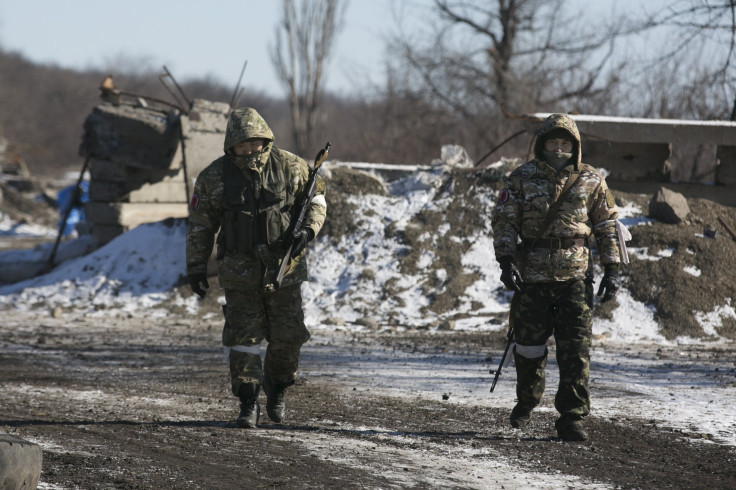Both Sides In Ukraine Conflict Torture War Prisoners And Civilians: Amnesty

A new report from rights group Amnesty International says it has found “overwhelming evidence” of war crimes, including torture and summary executions of prisoners, on both sides of the conflict in eastern Ukraine.
The report, released Friday, said that both sides in the entrenched conflict, which has gone on for over a year, have engaged in “frequent and widespread prisoner abuse.” In interviews with former prisoners, Amnesty recounted descriptions of prisoners having their bones broken, tortured with electric shocks, stabbed, forced to stay awake for days at a time, denied medical care and subject to mock executions.
“I thought I was being buried alive,” said Alexander Pinchuk, a building contractor who was captured at a pro-Kiev checkpoint run by the ultranationalist Right Sector and the Dnipro 2 battalion. “I tried to straighten up, but one guy stood on my head to stop me from doing so, and the others threw dirt onto me. I was on my knees, and finally there was quite a thick layer of dirt on top of me. At that moment I lost consciousness because of the dirt, because I couldn’t breathe.”
Right Sector spokesman Artyom Skoropadsky, however, refuted these claims to the Kyiv Post, arguing that it would make no sense for them to torture prisoners. “At least because we pass them to the SBU (Ukrainian security service) later, and if they will be maimed, they will ask us why they are maimed.
“Of course (our members) can hit them during the arrest or something, but they get the same food that our soldiers eat. Of course they live in worse conditions, but they even get beds,” Skoropadsky said.
All but one of the 33 prisoners Amnesty interviewed said they were heavily beaten or otherwise abused by both pro-Kiev militias and separatist groups in the country’s east.
“In the shadow of eastern Ukraine’s still smouldering conflict, our on-the-ground research shows that accounts of detainee torture are as commonplace as they are shocking,” said John Dalhuisen, Europe and Central Asia program director, at Amnesty International, in a press release. “Pro-Kiev and separatist forces alike must put an end to these crimes and ensure that all fighters under their control are aware of the consequences under international law of abusing prisoners amid an armed conflict.”
The worst abuses reportedly often took place during informal detention, in the first few days of captivity, when groups of militants operating independently tend to be especially violent, the report said. Also, not all those being held are prisoners of war, the Amnesty report found, as groups on both sides were holding civilians who harbored sympathies for the other side.
Amnesty called upon the United Nations and other monitors to visit the alleged detention sites in Ukraine to evaluate the conditions prisoners were held in.
“In some cases, these civilians are detained as currency for prisoner exchanges, but it also may be simply to punish them for their views. This is a disturbing and illegal practice that must be stopped immediately,” Dalhuisen said.
© Copyright IBTimes 2024. All rights reserved.











